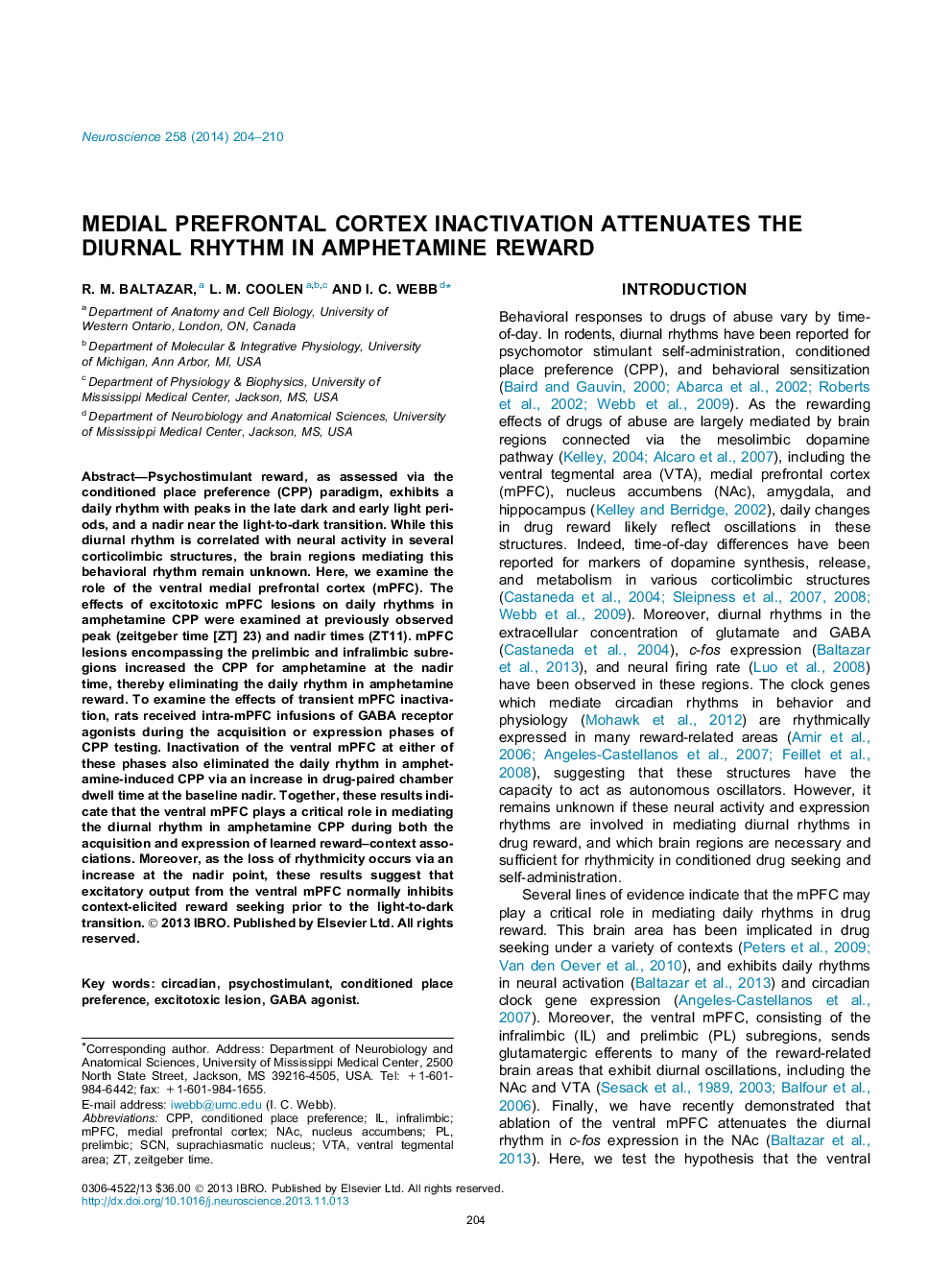| Article ID | Journal | Published Year | Pages | File Type |
|---|---|---|---|---|
| 4337771 | Neuroscience | 2014 | 7 Pages |
•Medial prefrontal cortex (mPFC) lesions eliminate diurnal rhythms in amphetamine reward.•Inactivation of mPFC during the acquisition phase of CPP eliminates rhythms in amphetamine reward.•Inactivation of mPFC during the expression phase of CPP eliminates rhythms in amphetamine reward.
Psychostimulant reward, as assessed via the conditioned place preference (CPP) paradigm, exhibits a daily rhythm with peaks in the late dark and early light periods, and a nadir near the light-to-dark transition. While this diurnal rhythm is correlated with neural activity in several corticolimbic structures, the brain regions mediating this behavioral rhythm remain unknown. Here, we examine the role of the ventral medial prefrontal cortex (mPFC). The effects of excitotoxic mPFC lesions on daily rhythms in amphetamine CPP were examined at previously observed peak (zeitgeber time [ZT] 23) and nadir times (ZT11). mPFC lesions encompassing the prelimbic and infralimbic subregions increased the CPP for amphetamine at the nadir time, thereby eliminating the daily rhythm in amphetamine reward. To examine the effects of transient mPFC inactivation, rats received intra-mPFC infusions of GABA receptor agonists during the acquisition or expression phases of CPP testing. Inactivation of the ventral mPFC at either of these phases also eliminated the daily rhythm in amphetamine-induced CPP via an increase in drug-paired chamber dwell time at the baseline nadir. Together, these results indicate that the ventral mPFC plays a critical role in mediating the diurnal rhythm in amphetamine CPP during both the acquisition and expression of learned reward–context associations. Moreover, as the loss of rhythmicity occurs via an increase at the nadir point, these results suggest that excitatory output from the ventral mPFC normally inhibits context-elicited reward seeking prior to the light-to-dark transition.
